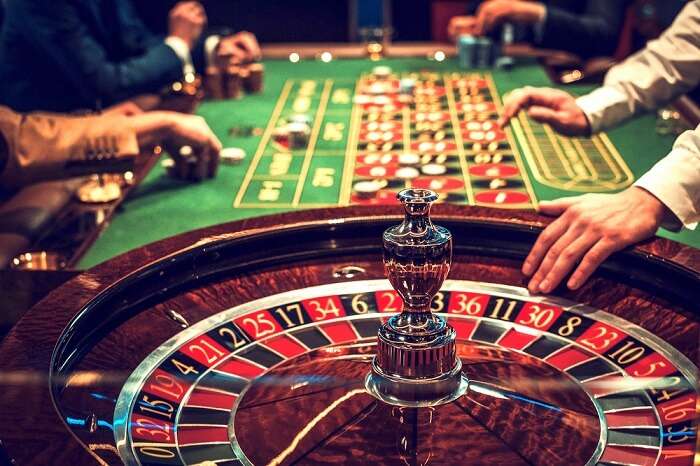
In the dynamic world of betting, casino options have long captured the interest of players around the globe. These games, ranging from classic table options like blackjack to the spinning reels of slot machines, offer an captivating blend of chance and strategy. While fortune undeniably plays a important role in influencing outcomes, the importance of skill in many gambling games cannot be overlooked. Grasping how knowledge affects gameplay can improve not only a gambler’s enjoyment but also their odds of success.
As we delve deeper the mechanics of gambling options, it becomes evident that some demand a robust base of wisdom and tactics. Games like blackjack require more than mere fortune; they require analytical thinking, mental insight, and calculated decision-making. In comparison, other games, such as the roulette wheel and slot machines, are primarily based on luck, allowing gamblers to rely entirely on fortune. This distinction raises thought-provoking questions about what really drives success in the world of casinos and how a player’s competences can tilt the balance in their advantage.
Understanding Skill versus Luck within Gambling Games
In the world of casino games, the discussion between skill and luck is a enduring one. Many games are frequently categorized into two categories: those that depend predominantly on randomness, such as slots and roulette, and those where skill plays a significant role, like the game of poker and 21. The distinction is crucial because it affects not only gameplay strategies but also the approach players adopt when engaging with these games. While luck can play a decisive role in the immediate, skilled players can boost their odds of winning over the long run in skill-based games.
Skill-based games, especially poker, necessitate players to comprehend odds, psychology, and game theory. A seasoned poker player can analyze opponents, make calculated bets, and understand when to fold, all of which can lead to more favorable outcomes. Conversely, in games that are purely based on chance, no amount of skill can alter the odds. This means that although a player may win big in one session, their victory may often be at the mercy to the vagaries of random outcomes rather than any strategic expertise.
In the end, both skill and luck coexist in the world of casino games, creating a vibrant environment for players. While games of chance can provide thrill and instant gratification, proficiency and strategy in skill-based games offer a deeper level of engagement for those prepared to invest time in refining their craft. This interplay between skill and luck defines the journeys of players and influences their connection with the games they choose to play.
The Impact of Skill on Casino Results
In the realm of casino games, proficiency plays a key role in determining the results, especially in games where strategy and choices are paramount. For instance, in the game of poker, players must analyze rivals, calculate probabilities, and make calculated bets to enhance their odds of winning. khuyến mãi 789win Unlike activities that depend purely on chance, such as slots or the roulette wheel, poker demands an understanding of both the rules and the behavior of other participants, making skill a critical component of victory.
Additional strategy-based games, like the game of blackjack, also highlight the importance of player skill. Understanding of basic tactics, card counting, and when to hit or stand can significantly influence the house edge. A proficient blackjack player can reduce this edge and improve their chances of success over time. This contrasts sharply with games that do not permit for such strategic play, demonstrating how the level of expertise directly affects the potential for positive outcomes.
Additionally, even within games deemed primarily chance-driven, like the game of craps, the decisions made by gamblers can influence their overall performance. Choosing the optimal bets, comprehending the likelihoods of different outcomes, and controlling one’s funds are essential aspects that can enhance a player’s experience and results. Thus, while luck remains a factor in gambling, skill can substantially influence how effectively participants navigate these settings, leading to more favorable results.
Strategies for Expert Play in Casinos
To succeed in gambling games, players must develop a robust comprehension of the rules and odds involved in various games. This foundational knowledge enables individuals to make informed choices, especially in skill-based games like poker and blackjack. Familiarizing oneself with game tactics, such as card counting in 21 or identifying wagering trends in poker, can significantly enhance a player’s odds of success. Practicing these strategies through simulations or low-risk games allows players to improve their skills without risking substantial amounts of money at risk.
Another key strategy is money management. Players should create a spending limit before going into the casino and follow it strictly. This involves determining how much they are prepared to lose and setting limits on how much they will bet in each session. By keeping a disciplined approach to spending, players can prolong their play and reduce the risk of major losses. Additionally, taking time-outs can help maintain a clear head and prevent rash decisions that often lead to bad gameplay.
Finally, emotional control is crucial in the intense environment of a gambling house. Players must learn to manage their emotions, particularly during times of winning or defeats runs. Staying attentive and not allowing emotions influence gameplay can lead to more logical decisions. Techniques such as deep breathing or stepping away from the table during heated moments can help maintain calmness. By cultivating a steady state of mind, players can approach casino games with assurance and skill, thereby improving their overall experience and results.
